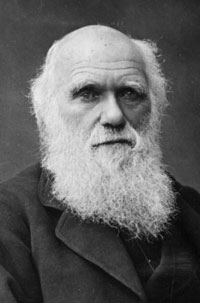 Changing China: Associate Professor Doug Downing explores the story of how China has recently changed and the role of microcredit in providing opportunities for the poor. Associate Professor of Economics. Part 1 [Video] Part 2 [Video]
Changing China: Associate Professor Doug Downing explores the story of how China has recently changed and the role of microcredit in providing opportunities for the poor. Associate Professor of Economics. Part 1 [Video] Part 2 [Video]
The Global Food System and India: Food Security vs. Food Sovereignty: Professor Kevin Neuhouser discusses the possibilities of ending world hunger through maximizing food production and strategies that focus on local, organic, and native foods. [Video]
Today’s Persecuted Church: Associate Professor Don Peter discusses the cultural, political, and religious motivations of global Christian persecution. [Video]
Who Is My Neighbor?: Associate Professor Michelle Beauclair and Instructor Andrea Taylor-Brochet discuss the stance of Christian Roma community members, how Christian groups have responded to the Roma expulsion, and what we can learn from this about our interactions with people who are culturally different from us. [Video]
Signs and Wonders: Communications Specialist Julia Siemens and SPU students Emily Morehouse and Rachel Smith tell stories of miraculous things they witnessed in Bangalore. [Audio]
The Global Impact of Infectious Disease: What Can You Do?: Biology Professors Cindy Bishop and Derek Wood discuss the global impact of parasites and infectious diseases with a focus on the “Microbial Impact Project” assembled each year by students in the SPU BIO 3351 Microbiology course. [Video]
A Child Redeemed: ZOE Children’s Home, Chiang Mai, Thailand: SPU staff member Joyce Bhang portrays God’s redemptive work in Thailand through the life of a child rescued from the threat of human trafficking. [Video]
The World Comes to Seattle: Assistant Professors of Education Jorge Preciado and Tracy Williams discuss ideas on improving social and academic performance in multicultural education. [Video]
Art, Christianity, Global: Charis Boundary Crossings: Art Professor Roger Feldman examines the artistic cultural exchange, hosted by the Nagel Institute and CCCU, that converged in Yogyakarta and Bali on Java, Indonesia in June of 2008. [Video] [Audio]
Energy Poverty: Associate Professors of Physics Lane Seeley and John Lindberg discuss the ways in which availability of energy resources influences a community’s ability to meet basic human needs and provide opportunities for intellectual and spiritual growth. [Video] [Audio]
Our Top Ten List of Amazing Good News from India: Professor of Geography Kathleen Braden and Al Erisman, Executive in Residence discuss ten economic and social phenomena from India that create encouragement and hope regarding India’s future. [Video] [Audio]
SPRINT India: Transformative Mission Through Empowering Education: Owen Sallee, Michael Richards, and members of the Summer 2009 and 2010 India SPRINT teams share stories from their work with Operation Mobilization and the Dalit Freedom Network, empowering members of India’s lowest caste through schools and education. John Perkins Center. [Video] [Audio]
Kingdom Without Borders: Global Christianity in the 21st Century: Professor of Global Ministries Miriam Adeney explores Muslim, Hindu, and Buddhist countries, as well as Latin American and African, and provides a glimpse of the backstory of her new book Kingdom Without Borders. [Audio]
Embassy Doorways for Orphan Nation: Assistant Professor of Education Richard Scheuerman and 2004 Alum Richard Moore share information on challenges and opportunities to place over a thousand orphans in Christian homes in their native country across Eastern Europe. [Audio]


 Biochemistry Course Lectures: Part Two In this second quarter of a three-part biochemistry series, Assistant Professor of Biochemistry Ben McFarland introduces the integration of the chemical knowledge gained about biological systems from fall quarter biochemistry. The major topic, metabolism, is discussed starting with biosignaling and continuing through catabolism, anabolism, and regulation of biochemical pathways. Series of course lectures. [
Biochemistry Course Lectures: Part Two In this second quarter of a three-part biochemistry series, Assistant Professor of Biochemistry Ben McFarland introduces the integration of the chemical knowledge gained about biological systems from fall quarter biochemistry. The major topic, metabolism, is discussed starting with biosignaling and continuing through catabolism, anabolism, and regulation of biochemical pathways. Series of course lectures. [
